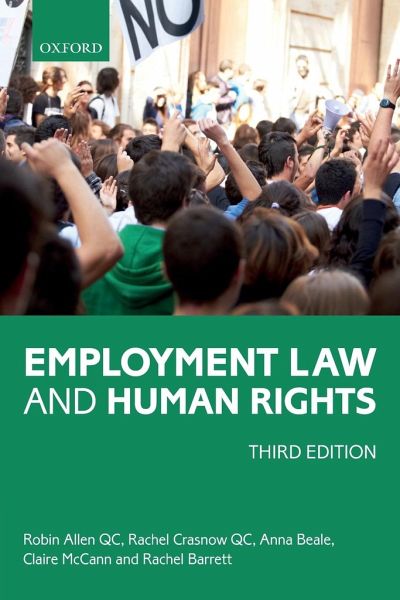
Employment Law and Human Rights

PAYBACK Punkte
69 °P sammeln!
The European Convention of Human Rights (ECHR), Human Rights Act 1998 (HRA) and the Charter of Fundamental Rights of the European Union have had a significant impact on UK employment law, but the ultimate contours of this are still developing and emerging, particularly post-BREXIT. In the face of these ever-changing human rights debates, questions concerning workplace behaviour are more abundant than ever: with such increased connectivity, how do we separate work life from private life? In the world of smartphones and tablets, is it lawful for employers to expect around the clock service and w...
The European Convention of Human Rights (ECHR), Human Rights Act 1998 (HRA) and the Charter of Fundamental Rights of the European Union have had a significant impact on UK employment law, but the ultimate contours of this are still developing and emerging, particularly post-BREXIT. In the face of these ever-changing human rights debates, questions concerning workplace behaviour are more abundant than ever: with such increased connectivity, how do we separate work life from private life? In the world of smartphones and tablets, is it lawful for employers to expect around the clock service and what flexibility should we expect in the workplace, both from employers and employees? This new edition examines these questions in detail, looking at the ongoing effects of human rights legislation on employment law. Including far more detailed coverage of the impact of equality laws on religion and beliefs, sexual orientation, and age, as well as the more established protected characteristics of race, sex, and disability, this book will provide practitioners with the vital information they need for the increasingly prevalent employment cases concerning human rights. This new edition has been substantially revised to take into account new legislation and the wealth of cases that have emerged since the previous edition published in 2007. This book provides an introduction to the sources and practices of human and fundamental rights and their relationship to employment law, before launching into an analysis of various working conditions. Topics covered include: prohibition on slavery and forced labour; equality rights in relation to cultural, religious, gendered, and linguistic diversity; special protections put in place for children; protection from unjustified dismissal; and the interface between family and work including maternity and paternity rights. Comprehensive coverage of available remedies, spanning from the right to a fair trial and using European law in the courts and tribunals, to making a preliminary reference to the European Court of Justice and applying to the ECHR, ensures that the book is of real, practical value. Regarded as one of the foremost authorities in this area, this edition is a must-have for all employment lawyers and students.




